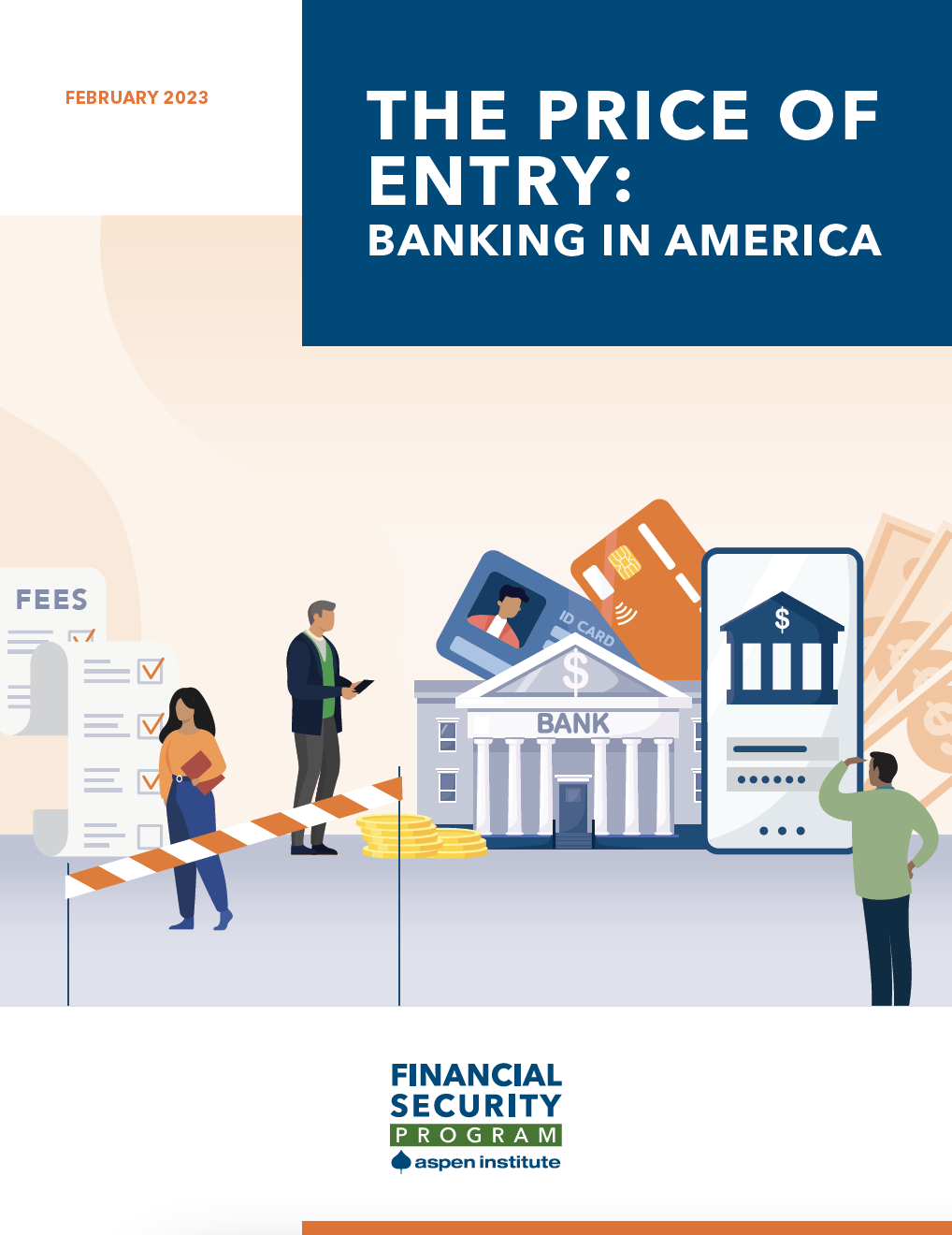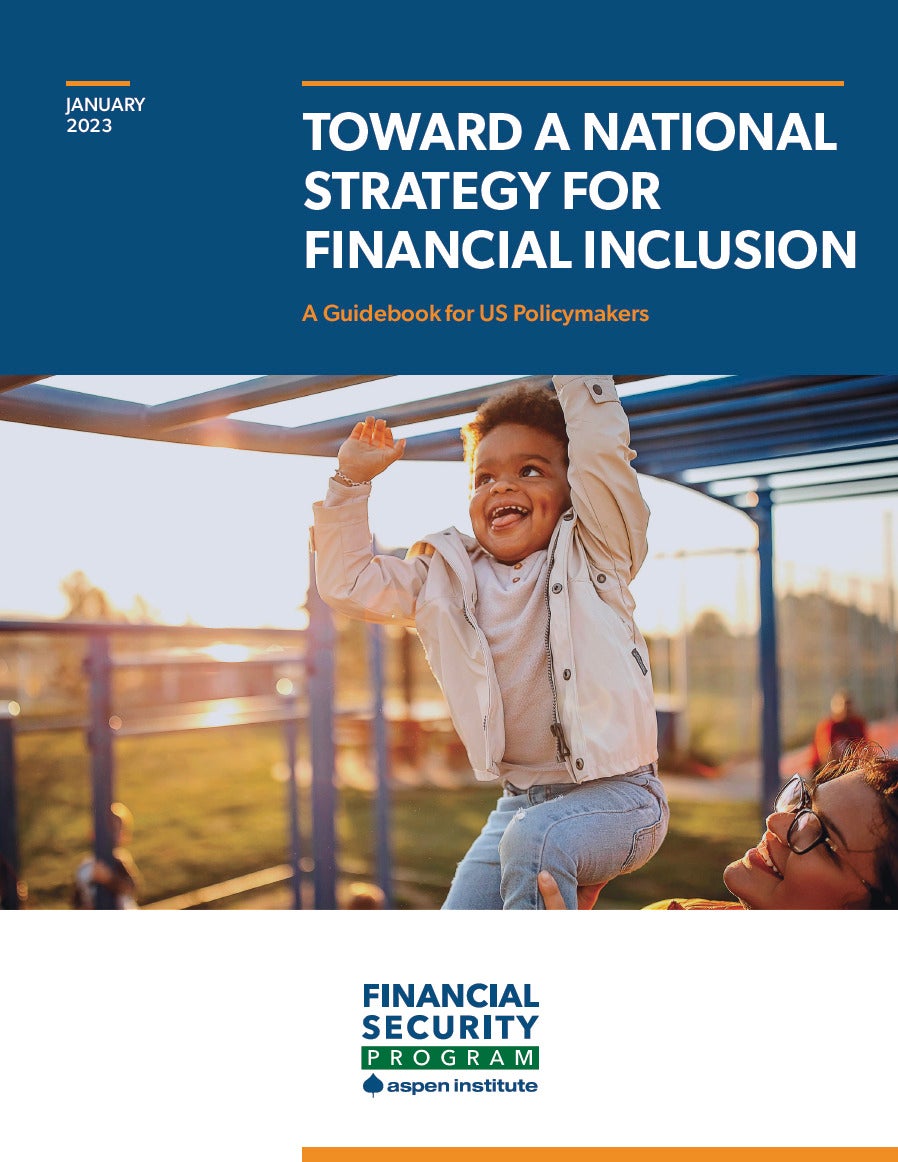A structurally inclusive financial system provides all people with the ability to access, utilize, and reap the benefits of a full suite of financial services that facilitate stability, resilience, and long-term financial security. However, the U.S. financial system currently fails to meet this definition. In 2021, nearly 1 in 5 households in the U.S. were either entirely disconnected from mainstream financial services or, despite having an account with a bank or credit union, still turned to costly alternatives to get the financial services they needed.
Download the Executive Summary
This report zeroes in on access to basic banking as the price of entry to the current U.S. financial system. Without basic banking products, people are locked out of other related systems, such as credit and financing, insurance, and savings. To better understand the context and current state of financial inclusion in the U.S. banking system, the Aspen Institute Financial Security Program conducted research and detailed interviews with more than 20 leaders from advocacy and civil rights organizations, mission-oriented financial service providers, and research institutions.
These leading experts agree that despite a spate of promising inclusive practices, persistent barriers continue to undermine financial inclusion at scale. This report provides an important analysis of those barriers and highlights the need for coordinated action between the private and public sectors to ensure that we have structurally inclusive, systems-wide solutions.
Funder Acknowledgement
This paper was developed with support from Wells Fargo.



